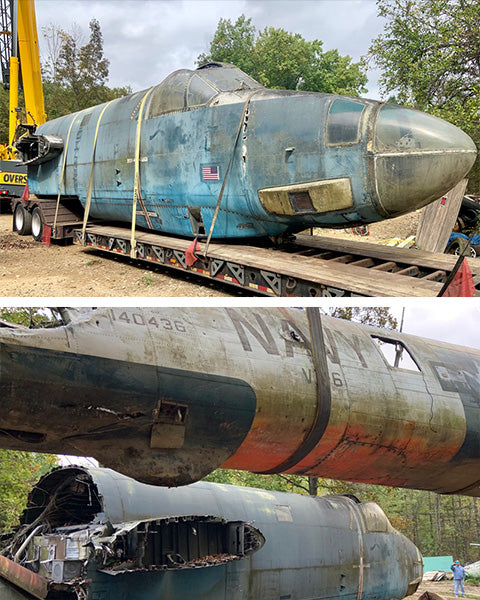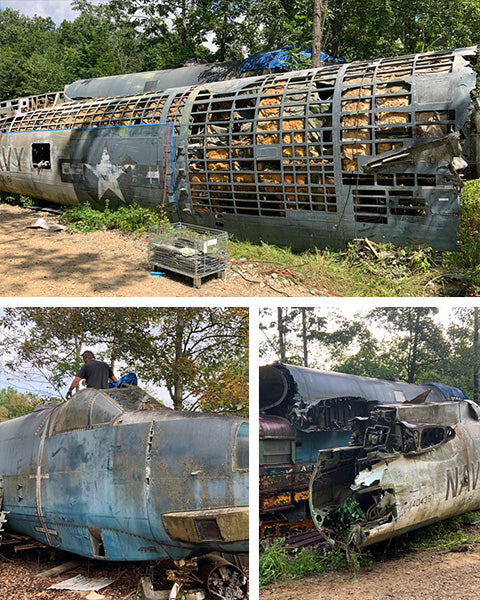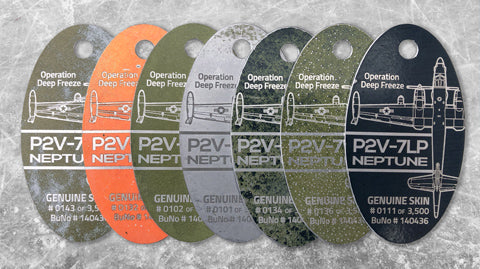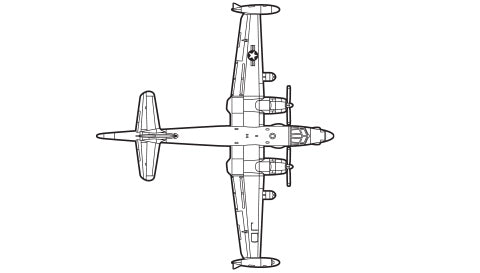MotoArt is honored to add another historic aircraft to the Walter Soplata Collection - a Lockheed P2 Neptune that braved the extreme Antarctic conditions in support of Operation Deep Freeze.
The Lockheed P2 Neptune was a long-range, maritime patrol and anti-submarine aircraft developed for the US Navy. It first flew in 1945, and after that the sky was the limit. They were produced nonstop between 1946 to 1961 and went on to boast one of the longest unbroken production runs of a military aircraft ever.
140436, constructed as a P2V-7LP, was one of four built that were specifically designed with wheel/ski landing gear and JATO gear for Antarctic operations. Built in 1956, ‘436 would spend its entire career with the VX-6 in support of “Operation Deep Freeze” out of McMurdo Station, Antarctica. ‘436, nicknamed ‘Candid Camera’, was tasked with moving cargo, personnel, fuel, SAR and medevac missions throughout Antarctica. It was struck off charge in 1965 and returned to the states.
In 1971, Walter Soplata saved ‘436 from scrapping. Using a makeshift flatbed he made from an old school bus, he transported the Neptune back to his property in Newbury, OH. ‘436 remained on the Soplata property for nearly 50 years until, in 2019, the MotoArt team carefully excised the Neptune and other planes from the overgrown greenery that held them for decades. The cockpit has been preserved in the Mojave desert with the hopes it will perhaps go to a museum one day. Sections of the original skin are now preserved as PlaneTags.



P2V-7LP NEPTUNE - # 140436

CHARACTERISTICS:
- Manufacturer: LOCKHEED
- BuNo : 140436
- Crew: 10
- Wing Span: 103 ft 10 in
- Length: 91 ft 8 in
- Height: 29 ft 4 in
PERFORMANCE:
- Range:3,780 nm
- Cruise Speed: 175 kts
- Ceiling: 22,000 ft
- Empty weight:49,935 lb
- Max Takeoff:79,895 lb
- Rate of Climb: 1,797 ft / min
- Engine: 2 × 3,500-hp Wright Cyclone R-3350-32W radial piston engines and two 3,400lb thurst J34-WE-36 auxiliary turbojets
Related Products





